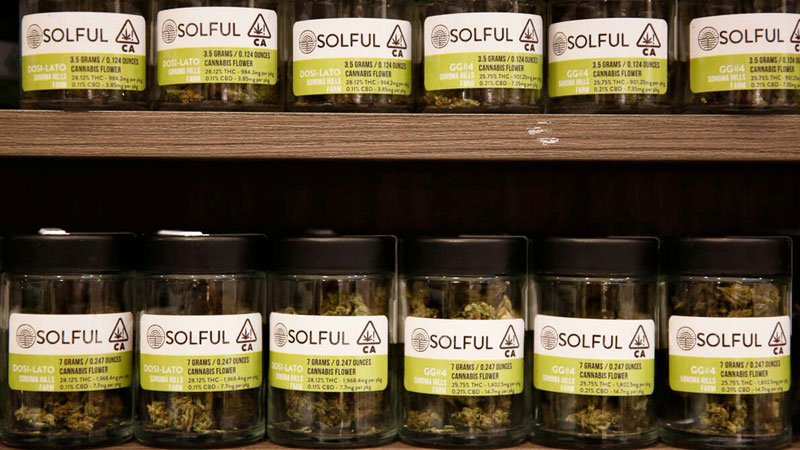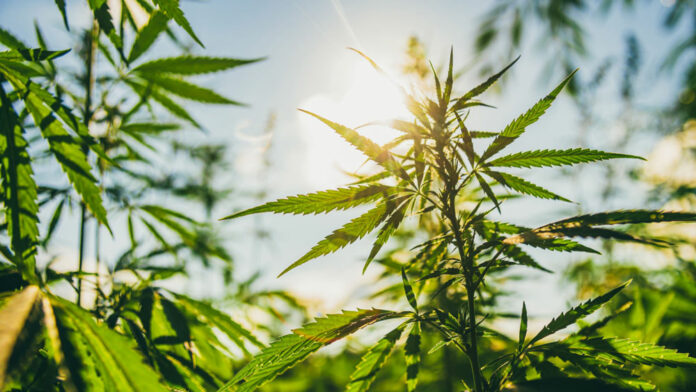If you care about buying organic produce at the grocery store, you should probably care about buying organic weed. Maybe even more so for something you intend to smoke. While it might seem like cannabis is naturally organic, not all growers have the same quality standards for their crops. What makes weed organic, and is there a label much like the one on food items? Is there a difference between “organic”’ and “clean weed?” Let’s get to the bottom of some of these questions.
What Makes Cannabis Organic?
First, let’s talk about what it takes to earn the seal of approval for a food product. To advertise your product as organic, you must pass a set of strict guidelines established by the U.S. Department of Agriculture. This certification only applies to 100% certified organic products, allowing you to use that little green and white logo saying “USDA ORGANIC.”
Since the USDA is a federal agency, and cannabis is still federally illegal, it doesn’t qualify for this certification. You can grow cannabis with nothing but sunshine, clean water, and natural soil, and it still cannot be labeled or advertised as organic. So, is there anything growers can do to effectively market their cannabis when it’s grown without pesticides?
Becoming Clean Green Certified
Many farmers take great care to avoid synthetic fertilizers, harmful pesticides, and other inorganic supplements. It’s the foundation of their integrity. This is especially true in Northern California, where the unique terroir is heralded as the primary reason why the cannabis in this region is so sublime.
Still, there is one certification that cannabis growers may achieve. The Clean Green Certified program was launched in 2004 to give growers a way to verify their organic growing practices. The requirements are generally the same as organic certification by the USDA. However, it only applies to weed. Gaining Clean Green certification means that a grower has thoroughly provided evidence of their efforts towards organic, sustainable, and regenerative practices.
Although growers cannot apply for federal certification, many wouldn’t want to. This isn’t unlike many smaller food producers who simply cannot jump through the notoriously challenging hoops to obtain certification, even though they adhere to organic cultivation or sourcing practices. Instead, they opt to educate their consumers on how they are committed to regenerative farming practices and what they do to continually feed the soil’s health.

Benefits of Organic Weed
Organic cannabis—whether or not it’s Clean Green Certified—boasts several benefits to weed grown with unsavory chemicals and harsh pesticides.
Health and Safety
It’s safe to assume that smoking a chemical-laced pot is not a good idea. We don’t fully understand the long-term effects of sparking up a bowl of Roundup-ready weed, but let’s assume it’s not great. Seconds after inhalation, the compounds in weed head straight for your bloodstream before they are distributed to the brain and the body’s soft tissues. None of these places sound like a good spot for pesticides.
Environmental Wellness
Conventional fertilizers are typically produced with fossil fuels, requiring massive amounts of energy. Growing cannabis organically means growing outdoors whenever possible (to reduce the energy waste of indoor setups) and using only organic nutrients and fertilizers. Feeding the soil with mineral-rich bone meal, bloodworms and animal guano feeds the soil instead of depleting it. On the other hand, pumping the ground full of non-organic fertilizer poisons the land and, even worse, may make its way into the water supply.
Enhanced Flavor and Taste
There is a very distinct “chemically” taste and smell to non-organic cannabis. It’s metallic, bitter, and a bit like diesel (but not in a good way like Sour Diesel!). It burns your throat, causes more coughing, and is an all-around bummer. In addition, non-organic supplementation can stunt the growth of terpenes, which are primarily responsible for a strain’s flavor and aroma, but also contribute to its effects.
Greater Potency
Many conventional weed fertilizers contain only the basics required to keep cannabis alive. It’s a balance of nutrients like nitrogen, phosphorus, calcium, potassium, and many others. Yet, it’s the bare bones basic requirements. Experienced growers who understand the needs of their crop make their organic feed, including non-traditional ingredients like cobalt, nickel, sodium, and others that are shown to improve plant health and overall yield. When plants are supported to reach their full potential, the cannabinoid and terpene content increases, thereby enhancing the potency.

Shop Local, Sustainable, Organic Cannabis
Consumers have plenty of options to shop for cannabis. Asking about Clean Green Certification is one way to do your independent research to ensure the products you smoke are as organic as possible. Another way to find the cleanest weed is by shopping at a dispensary that only sources cannabis from organic growers who are deeply committed stewards of the land. For example, Solful dispensary works with local, small-batch, organic farmers in the Emerald Triangle to stock its dispensary shelves. Check out Solful in Sebastopol or Santa Rosa, or shop online for delivery or pickup. With so much cannabis in Northern California, there is never a reason to buy anything but the highest quality, organic herb.





